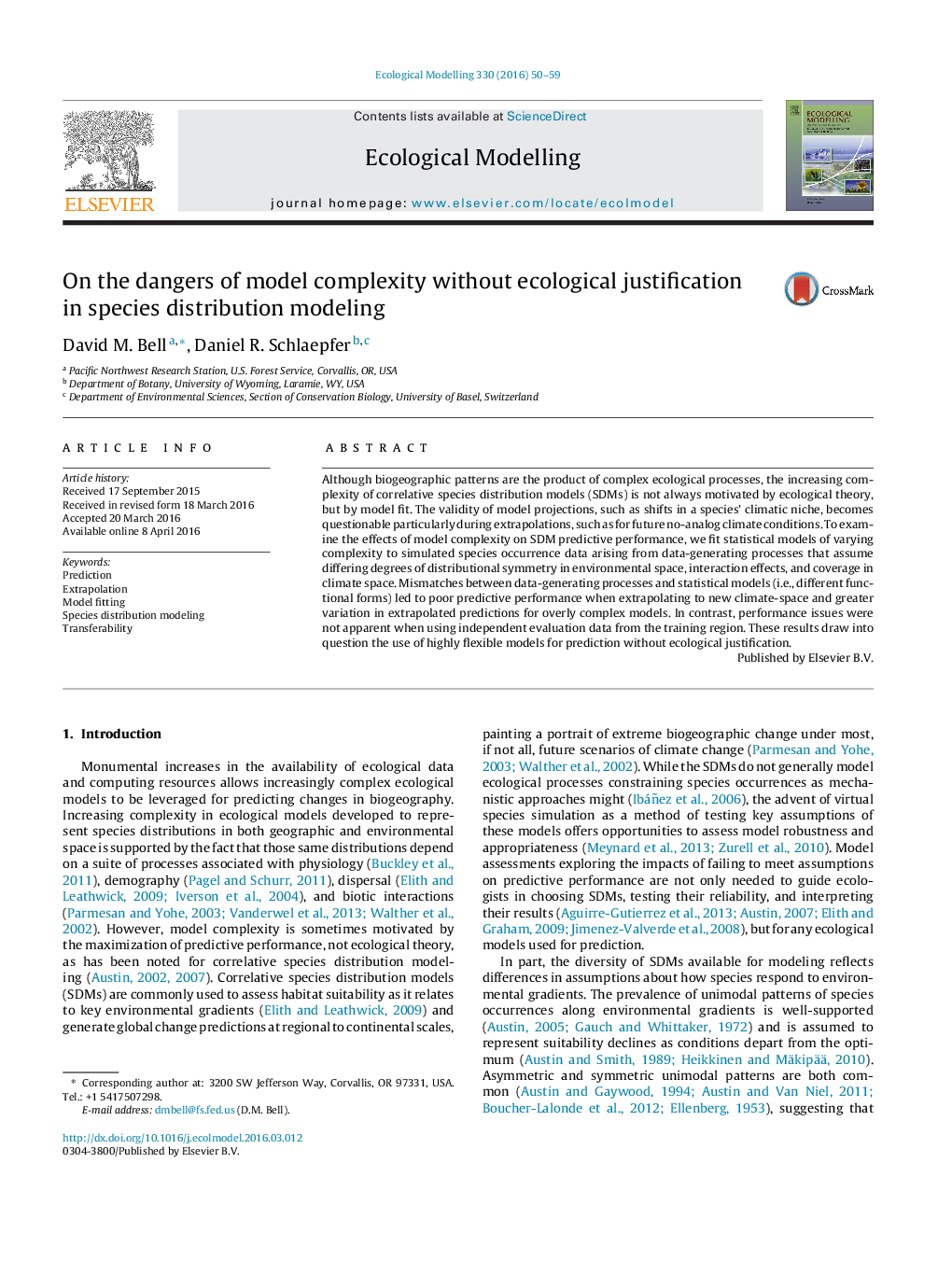| Article ID | Journal | Published Year | Pages | File Type |
|---|---|---|---|---|
| 4375529 | Ecological Modelling | 2016 | 10 Pages |
•Species distribution modeling increasingly prioritizes flexibility over theory.•We assessed model complexity effect predictive performance with virtual species.•Complex models performed well when not extrapolating to no-analog climates.•When extrapolating, complex model predictive performance declined.•Without ecological justification, complex models are suspect when extrapolating.
Although biogeographic patterns are the product of complex ecological processes, the increasing complexity of correlative species distribution models (SDMs) is not always motivated by ecological theory, but by model fit. The validity of model projections, such as shifts in a species’ climatic niche, becomes questionable particularly during extrapolations, such as for future no-analog climate conditions. To examine the effects of model complexity on SDM predictive performance, we fit statistical models of varying complexity to simulated species occurrence data arising from data-generating processes that assume differing degrees of distributional symmetry in environmental space, interaction effects, and coverage in climate space. Mismatches between data-generating processes and statistical models (i.e., different functional forms) led to poor predictive performance when extrapolating to new climate-space and greater variation in extrapolated predictions for overly complex models. In contrast, performance issues were not apparent when using independent evaluation data from the training region. These results draw into question the use of highly flexible models for prediction without ecological justification.
